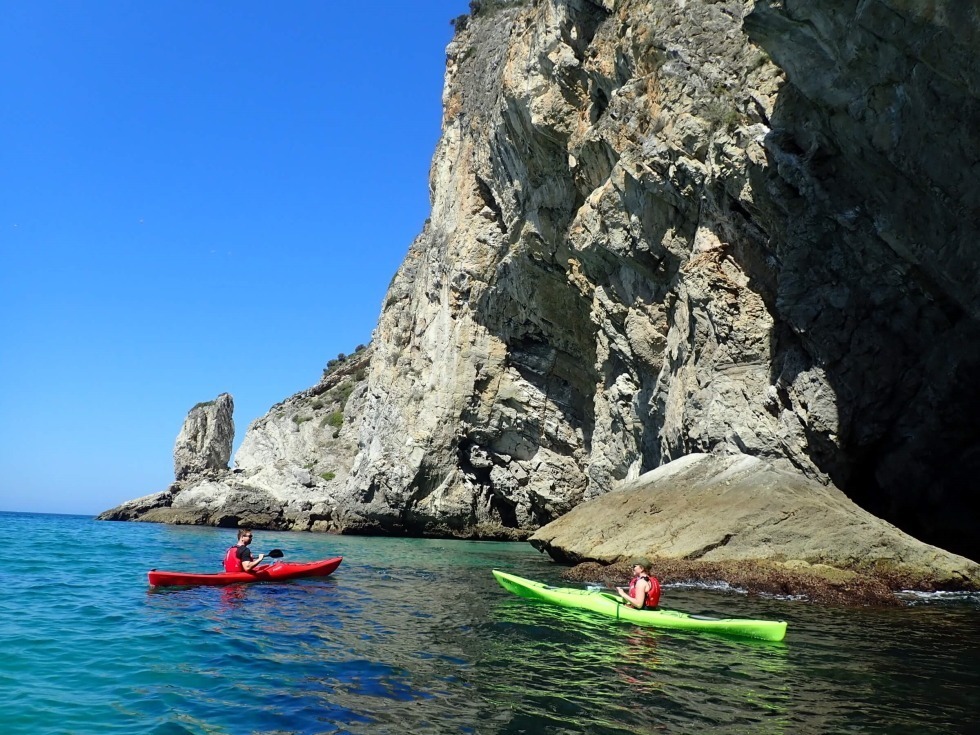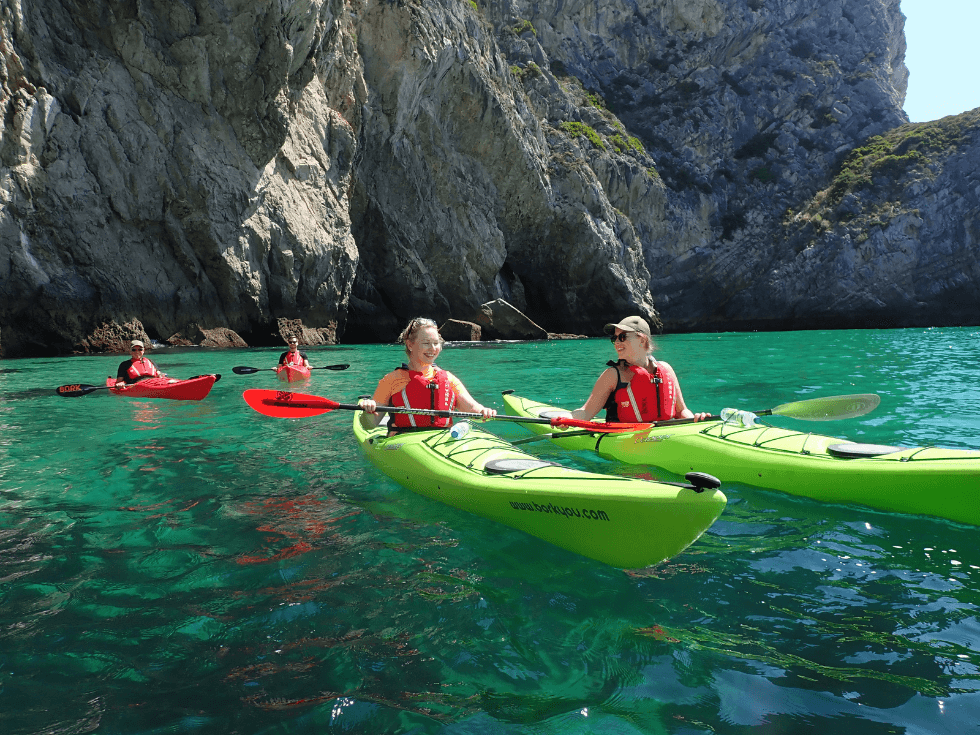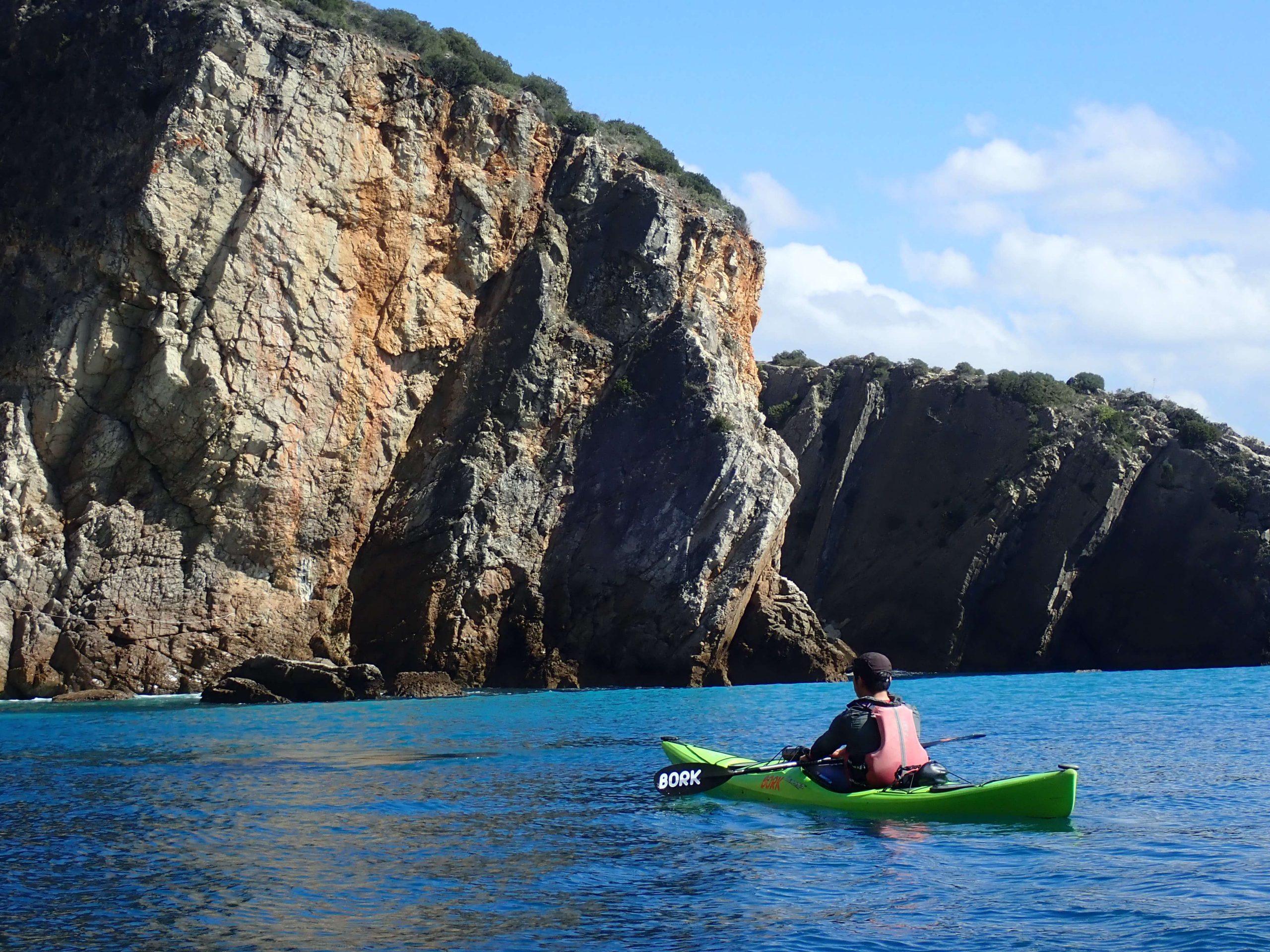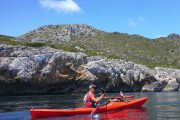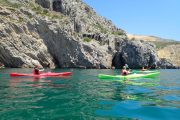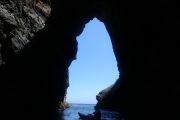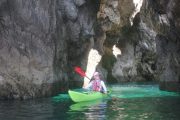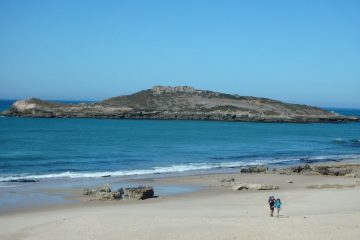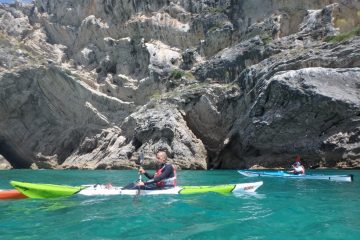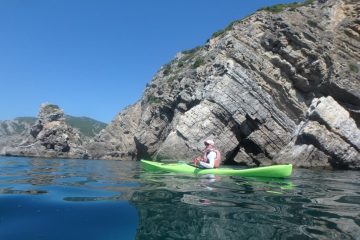Arrabida Kayaking Expedition
Arrábida Nature Park is one of the most beautiful and fascinating natural regions of Mediterranean influence that remains almost untouched in its natural equilibrium. The cultural references of the Park witness occupation from prehistoric times, through those of the Phoenicians and Romans to the Arabs.
We will paddle in the Maritime Reserve Luiz de Saldanha and in the estuary of the Sado River, enjoying the caves, secret beaches, old fortresses along the coast and crystal clear waters where we might play with the dolphins if we´re lucky.
For many years the area now occupied by the Arrabida Natural Park was an important hunting reserve with a diversified fauna, which, amongst other species, included wolves, wild boar and deer, the latter having disappeared by the beginning of the 20th century. The most representative and characteristic biotopes for the land fauna are limestone cliffs and rocky outcrops, caves, scrubland, thickets, bushes, copses, corkwoods, pine forest, meadows and small watercourses that we best see paddling along the coast. Arrabida’s marine ecosystems are of the greatest national and international importance too.
Our ACA certified and experienced guides will take the best care of you during this paddle adventure that is limited to groups of 12 participants.
| INCLUDED | ACA certified guide Sea kayak (individual or double), spraydeck, PFD, paddle (sea kayak or wing) Transfers onsite and from Lisbon (departure at 12pm on day 1 and return at 2pm on day 5) Insurance Full-board Accommodation, 4 nights |
Next departures
| 20/05/2024 to 24/05/2024 | Places available |
Additional information
| Dates | 20/05/2024 – 24/05/2024 |
|---|
Trip introduction, first paddling session
Sesimbra - Espichel, 25 km
Sesimbra - Setúbal, 24 Km
Setúbal - Troia - Carrasqueira, 20km
Visit Palmela, farewell
Arrábida Nature Park
Arrábida Nature Park and Maritime Park Professor Luis Saldanha are one of the most beautiful and fascinating natural regions of Mediterranean influence, and remains almost untouched in its natural equilibrium. For many years the area now occupied by the Arrabida Natural Park was an important hunting reserve with a diversified fauna, which, amongst other species, included wolves, wild boar and deer, the latter having disappeared by the beginning of the 20th century. The most representative and characteristic biotopes for the land fauna are limestone cliffs and rocky outcrops, caves, scrubland, thickets, bushes, copses, corkwoods, pine forest, meadows and small watercourses. Arrabida’s marine ecosystems are of the greatest national and international importance too. The cultural references of the Park witness occupation from prehistoric times, through those of the Phoenicians and Romans to the Arabs. We will visit the medieval castles of Sesimbra and Palmela and the sixteenth century Fortress of S. Felipe and spend the night in the Convent of Arrábida.

